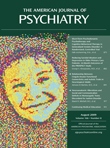The French poet Stéphane Mallarmé taught that a poet’s role is to purify the language of the tribe, a perspective amply validated by the fact that gifted poets create our most informative psychiatric phenomenology. They regularly describe subjective moods and passions with great precision and eloquently portray how altered states of mind impact lives. Poets not only write our finest histories of the present illness and mental status exams, but they also best describe human experiences from anguish and despair to elation and manic frenzy in words that incomparably convey the inner worlds of these disorders.
Mark S. Bauer, a professor of psychiatry who is an expert mood disorders researcher and senior educator at Harvard, was therefore surprised to find no available anthologies of verse concerning the rich poetic tradition focusing on disordered mood. Since he is an accomplished poet as well as a medical academic, he found that this gap in the literature cried out for attention. Dr. Bauer, who reads poetry widely and critically, set himself the task of filling this void. In A Mind Apart, he gifts the field with a wide-ranging intellectual and artistic treasure trove that nicely remedies the deficiency.
The anthology offers a poet’s Facebook, featuring selections from more than 120 English-language poets (and a few lyricists) whose work has been published from the 12th through the 21st century. Dr Bauer frames these works through several cross-cutting themes: “melancholy,” featuring poems that deal with the classic syndrome; “madness and reason,” expressing oppositions of conventional, rational thought by unrulier passions; “sweet melancholy,” in which authors draw philosophical and noble truths from their psychic sufferings; and several others. In an erudite introductory essay riddled with illuminating examples, Dr. Bauer shows us how to read these poems—how to focus on and extract their pearls.
As for the main events, many of your favorite poets appear: classic English authors, such as William Shakespeare and John Milton; 19th century poets including Blake, Coleridge, Byron, Shelly, Keats, Browning, Dickinson, and Tennyson; American poet laureates such as Stanley Kunitz and Howard Nemerov, and other 20th century greats including Allen Ginsberg, Randall Jarrell, Donald Justice, Edna St. Vincent Millay, Theodore Roethke, Dylan Thomas, and numerous others. Each has much to say about personal struggles and shifting moods. Premonitory brooding works of poets, who ultimately committed suicide, including John Berryman, John Bolton, Sylvia Plath, and Anne Sexton, underscore the deadly seriousness as well as the high art of these writings. Several well-established physician poets are represented, including Robert Bridges (who was also a poet laureate) and Thomas Beresford, a contemporary academic psychiatrist. In addition, I learned about—and from—a host of diverse, perceptive poets who were new to me. A selection of 18th century song lyrics by anonymous authors movingly conveys their moods. (Attention musicians: Many poems included in this book have never been set to music. What inviting material to facilitate future evolutions of the blues.)
For those who read poetry to better plumb and empathically ken the depths of human experiences, including painful ones, and those who find poetry capable of providing humanistic educational tools for medical and allied students, residents, professional colleagues, patients, families, and other learners, this volume provides a welcome and accessible collection. Through this work, Dr. Bauer has advanced the literature on mood disorders. One hopes that in the future he and others will continue these efforts and harvest additional fine specimens of poetry from the wider pools of language and culture that further inform our knowledge and experience of melancholy, madness, and addictions.

